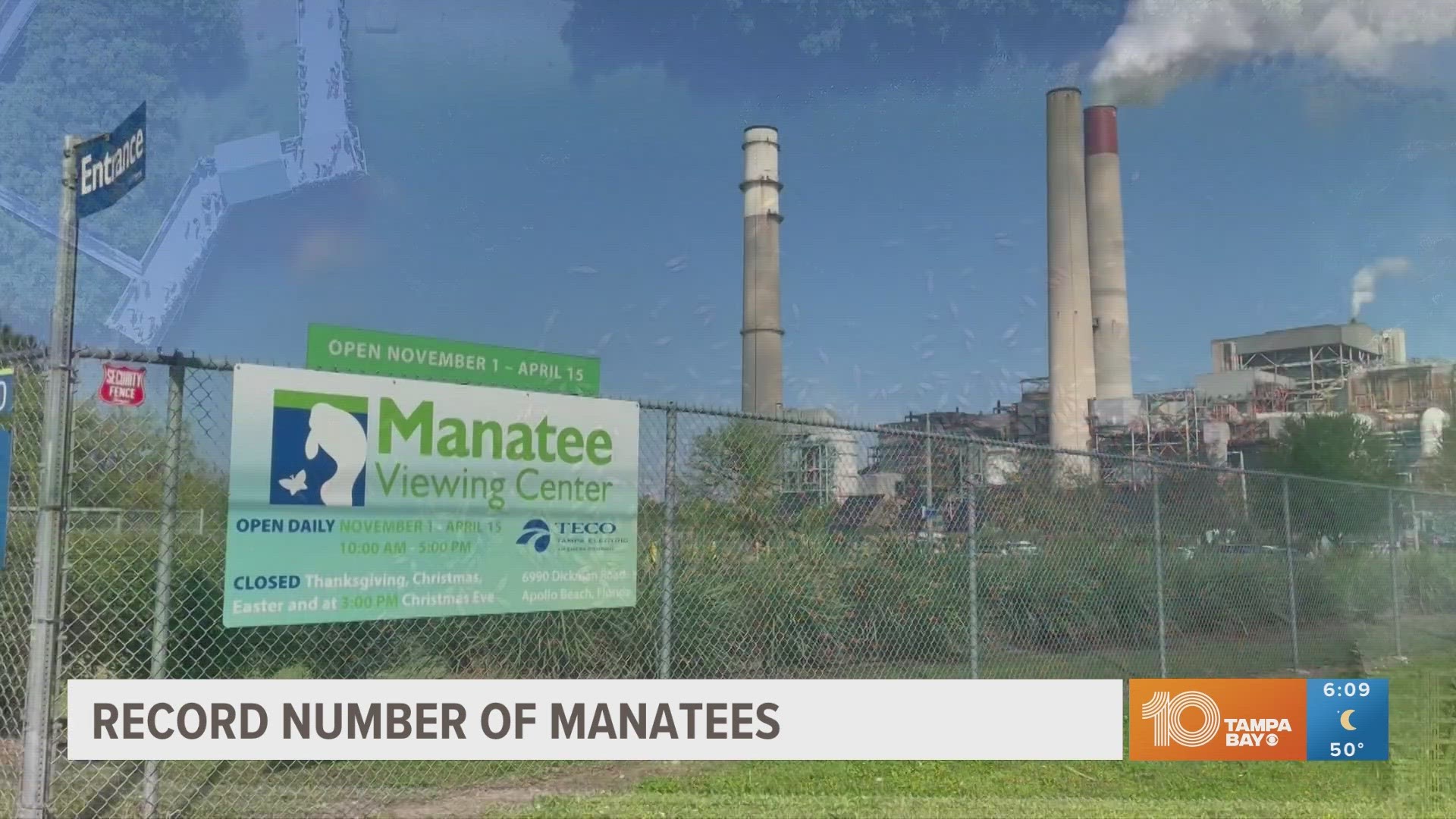APOLLO BEACH, Fla. — More manatees than ever before have gathered at Tampa Electric's Manatee Viewing Center.
A record-setting 1,100 manatees came together at a single time this season, eclipsing the previous record of 850 set last winter, a press release from Tampa Electric reads.
Stan Kroh, manager of Land and Stewardship Programs for Tampa Electric, credits the "chilly" winter the Tampa Bay area has experienced that "has allowed us to see more manatees at one time than ever before."
"This makes for an even better experience for our visitors," Kroh said in a statement.
As the manatees gather each year, so, too do thousands of people to witness the spectacle, featuring one of Florida's most beloved animals. Tampa Electric says that nearly 500,000 people visited the Manatee Viewing Center last year, and more than 7.4 million have visited since it opened in 1986.
The manatees have been gathering there since the 1970s in search of warmer waters near Tampa Electric's Big Bend Power Station. Manatees will seek warmth when the water temperature reaches 68 degrees or colder.
The viewing center is located at Apollo Beach and admission and parking are free, according to Tampa Electric. Visiting hours are from 10 a.m. to 5 p.m. every day until April 15. You can click here for more information.
Tampa Electric isn't the only warm-water destination celebrating a milestone this winter. Earlier this month, Blue Spring State Park also announced a new record of 932 manatees counted at a single time.
Manatees can be found along the coastal and inland waters of the southern United States, throughout the Caribbean Islands and along the eastern coasts of Mexico and Central America and the northern coast of South America, according to the Florida Fish and Wildlife Conservation Commission (FWC).
In the Gulf, Florida manatees tend to migrate toward the state's warmer water habitats as cooler months approach, seeking out artesian springs and power plant discharge canals like Tampa Electric's, FWC explains.
"...these warm water habitats play an important role in their survival during the winter months," FWC's website reads.

